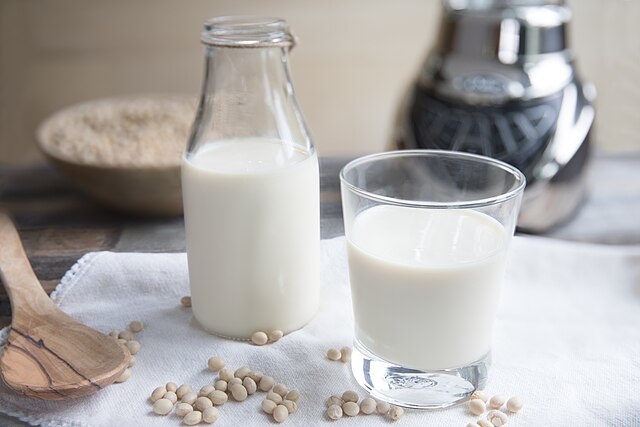Switching to a vegan lifestyle is an exciting and health-conscious choice that can feel a bit daunting initially. However, one of the easiest places to start is by exploring plant-based milk alternatives. Replacing traditional dairy with plant-based options is a small step that brings significant benefits, from improved digestion to lower environmental impact. Let’s explore how you can begin your vegan journey by incorporating plant-based milk into your diet and discover some delicious alternatives along the way.
Why Start with Plant-Based Milk Alternatives?
One of the primary reasons people choose plant based milk is because it’s accessible, widely available, and incredibly versatile. It’s easy to swap in for dairy in most recipes, making it one of the least disruptive changes to your diet. Here are a few key reasons why plant-based milk is a great place to start:
- Easy to Transition
Replacing dairy milk with plant-based options like almond, soy, oat, or coconut milk is simple and requires no additional cooking skills or major adjustments. - Improved Digestion
Many people find that they digest plant-based milk more easily than dairy, especially if they have lactose intolerance or dairy sensitivities. - Variety of Nutrients
Each type of plant-based milk offers unique nutritional benefits, including vitamins, minerals, and healthy fats. By exploring various kinds, you can find one that suits your dietary needs. - Environmental Impact
Plant-based milk production generally uses fewer resources than dairy farming, making it a more sustainable choice for those conscious of environmental impact.
Types of Plant-Based Milk and Their Benefits
Almond Milk
Almond milk is a light, mildly nutty alternative to dairy milk, often fortified with vitamins D and E. It’s perfect for smoothies, coffee, and cereal. As a low-calorie option, almond milk is also great for weight management.
Soy Milk
Soy milk is one of the most popular plant-based milk options due to its high protein content, which makes it a more nutritionally comparable substitute for cow’s milk. It’s creamy and works well in both cooking and baking.
Oat Milk
Oat milk has a naturally sweet, creamy texture, making it perfect for coffee, lattes, and baking. It’s high in fiber and beta-glucans, which can benefit heart health by helping to lower cholesterol levels.
Coconut Milk
Coconut milk is rich and creamy, often used in cooking and baking. While it has a higher fat content than other plant-based milks, it’s primarily composed of medium-chain triglycerides (MCTs), which may support metabolism and energy levels.
How to Incorporate Plant-Based Milk into Your Diet
Switching to plant-based milk is easy because it can be used almost anywhere you’d typically use dairy. Here are some ideas to get you started:
- In Your Morning Coffee or Tea
Try adding a splash of almond or oat milk to your coffee for a creamy, dairy-free option. For a thicker texture, soy milk works well in lattes or cappuccinos. - Smoothies and Protein Shakes
Almond, coconut, or oat milk make excellent bases for smoothies, adding creaminess without overpowering the flavors of fruits and vegetables. - Baking and Cooking
Soy milk and oat milk can be substituted one-for-one with dairy milk in recipes, so you can easily enjoy plant-based versions of your favorite baked goods. - Cereal and Overnight Oats
Pouring plant-based milk over cereal or into overnight oats is an easy way to incorporate it into your routine. Oat milk, in particular, complements the texture of oats and granola. - Desserts and Ice Cream
Plant-based milks can also be used in homemade ice creams and desserts, allowing you to enjoy creamy treats without dairy.
How to Choose the Right Plant-Based Milk for You
Selecting the best plant-based milk depends on your personal taste preferences and dietary goals. Here are some points to consider:
- Flavor and Texture
Each type of milk has a unique taste and consistency. Almond milk is lighter, soy milk is creamy and neutral, and coconut milk has a tropical flavor. Try a few to see what you prefer. - Nutritional Needs
If you’re looking for protein, soy milk is an excellent choice. For low-calorie options, almond milk is ideal, while oat milk provides fiber that’s beneficial for digestion and heart health. - Fortified Options
Many plant-based milks are fortified with vitamins like B12, calcium, and vitamin D, making them nutritionally comparable to dairy milk. Check labels if these nutrients are essential to you. - Sugar Content
Choose unsweetened varieties to avoid added sugars, which are common in flavored versions of plant-based milk. This can make a big difference in overall health, especially if you drink it daily.
Getting the Most Out of Your Vegan Journey with Plant-Based Milk
Starting with plant-based milk is a fantastic first step, but here are some ways to make your journey even more fulfilling:
- Explore New Recipes
Experiment with plant-based milk in recipes you haven’t tried before, like vegan mac and cheese, dairy-free ice cream, or creamy soups. - Try DIY Plant-Based Milk
If you enjoy making things from scratch, try creating your almond, oat, or cashew milk at home. It’s simple and allows you to control ingredients. - Look for Vegan Certifications
When buying plant-based milk, choose brands with vegan certifications, ensuring that they’re free from animal products and ethical in production.
Conclusion
Starting your vegan journey with vegan products is a wonderful way to ease into a healthier lifestyle. With options like almond, soy, oat, and coconut milk, you’ll find the perfect fit for your taste, health goals, and recipes. By making a simple change in your daily routine, you’re already taking significant steps toward a more sustainable, compassionate, and nutritious diet. Enjoy experimenting with plant-based milks, and embrace the delicious possibilities they bring to your table.


